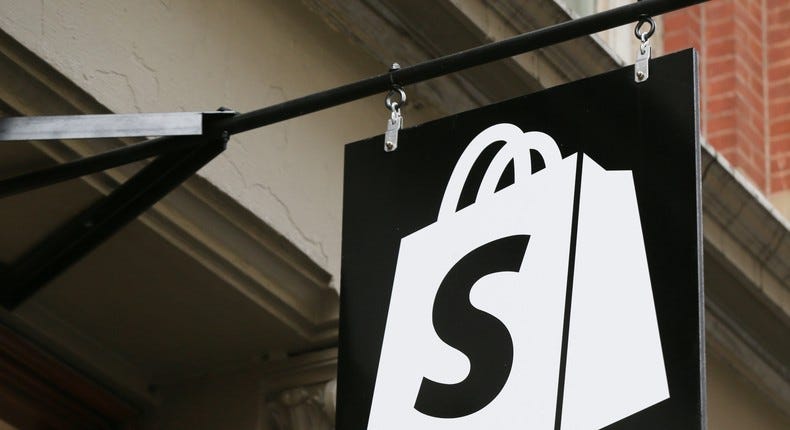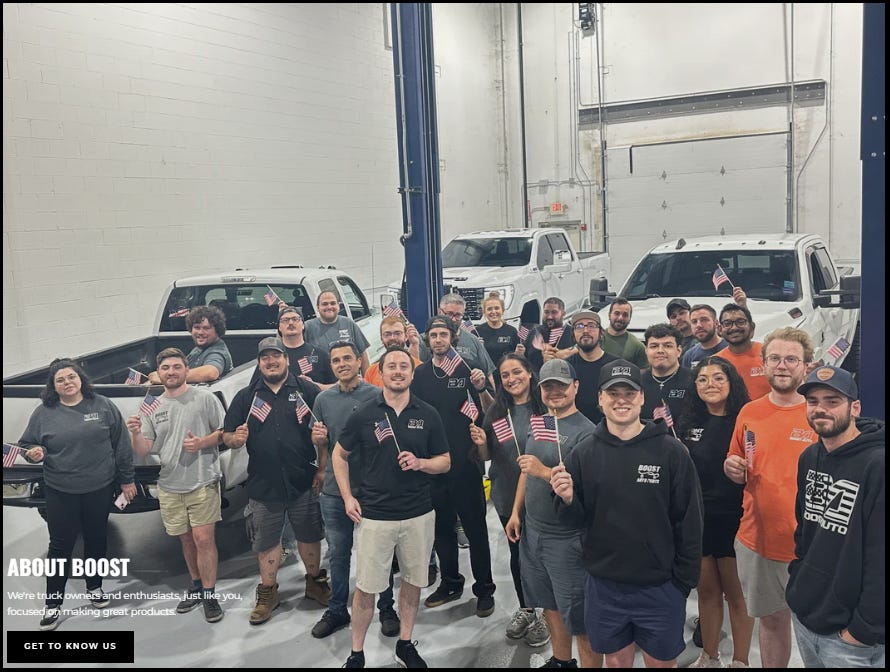What Shopify success stories reveal about the future of business
Hey guys, quick question, do you actually believe those flashy YouTube videos where people claim to be millionaires and promise to teach you how to become one too?
Now, I’m not saying all of them are fake, some definitely are real millionaires. But let’s be honest, there’s a fair share of scammers out there too, trying to make a quick buck off hopeful dreamers.
From my own experience, I’ve come across a few who are genuinely successful, and I’ve personally applied some of their strategies.
So why am I bringing this up?
Well, lately I’ve noticed a wave of aspiring CEOs turning to YouTube in search of guidance and inspiration.
And while some get lucky and find solid advice, many others end up getting misled or scammed.
Over the past few weeks, I’ve been diving into content from CEOs talking about their Shopify journeys.
That curiosity led me down a rabbit hole of research. And yes, I actually came across some legit, successful founders who have built thriving businesses on Shopify.
Their stories are worth sharing, especially if you're aiming to become a CEO yourself.
One video that stood out to me was by Davie Fogarty, where he shares how he helped save a struggling dog supplement business:
It’s a practical, hands-on example of how strategic thinking and tools like Shopify can turn things around.
But let me be clear, starting a Shopify business isn’t a walk in the park. Success takes hustle, patience, and a solid strategy.
You can also check out this insightful Reddit thread for real user experiences with Shopify:
So no, don’t fall for the shiny, too-good-to-be-true videos promising overnight riches. Stay grounded, do your research, and follow people with real results.
Before I jump into a few inspiring Shopify success stories, let me quickly explain Shopify for those who are new here.
What is Shopify?
Shopify is one of the world’s leading e-commerce platforms. It allows individuals and businesses to create online stores, manage inventory, process payments, and handle shipping, all from one place. It’s known for being user-friendly and scalable, and it powers millions of businesses globally. Big brands like Gymshark and Allbirds used Shopify to go from startup to global success. If you're thinking about launching an online store, Shopify is a great place to start.
There are countless success stories, but today I’ve handpicked a few that I think will truly inspire you to take the leap toward becoming a CEO.
As you read, try to pick up ideas that can help you improve profitability, efficiency, and compliance in your own business.
1. Tony's Chocolonely
I love chocolate—and with my wife’s anniversary tomorrow, I already know what I’m buying😊. But back to business…
If you’re curious about how a chocolate brand can scale globally, this one’s for you.
Tony’s Chocolonely was founded by Tony and his journalist friend with a mission to create ethically-produced chocolate.
To grow their brand and unify operations across DTC, B2B, and resellers, they partnered with Ask Phill to migrate to Shopify.
Results?
A website 2.5x faster
One streamlined platform for all segments
Double-digit growth in four key markets, including 70% growth in the U.S.
Tony’s story shows that scaling a business requires systems that scale. It’s a shining example of how purpose-driven brands can succeed using smart digital strategies.
2. Bambi Baby
Bambi Baby began as a small family-run store focused on baby furniture and gear.
Over time, it grew into a thriving independent business, but not without its challenges.
Outdated manual processes and disconnected systems made it increasingly difficult to meet modern customer expectations for speed and efficiency.
By migrating to Shopify, Bambi Baby unified its online and in-store operations, streamlining everything from checkout to inventory.
The results speak for themselves: a 30% boost in both conversion rates and average order value, faster in-store checkouts, and increased repeat purchases driven by a cohesive loyalty program.
Their transformation is a compelling example of how a legacy family business can modernize and scale successfully.
3. Laura Geller Beauty
In today’s competitive landscape, marketing isn’t optional, it’s foundational. Laura Geller Beauty understood this well.
Founded in 1997, the brand focuses on makeup for mature women, offering products tailored to aging skin.
While they had a loyal customer base, acquiring new customers efficiently was a major hurdle.
By using Shopify’s Shop Campaigns and Audiences, the brand refined its targeting strategies to reach the right audiences with minimal effort and sustainable cost.
The impact was impressive: a 140% year-over-year increase in revenue and a 5% rise in average order value.
Their success underscores the importance of knowing your audience and innovating your marketing approach to stay ahead.
4. Backyard Butchers
While customer acquisition is essential, long-term success lies in retention. Backyard Butchers nailed this by creating deep, personal relationships through face-to-face interactions.
Launching in 2020 with pop-up shops instead of a traditional e-commerce model, they brought premium, hormone-free beef directly to communities across 48 states, reaching over 600,000 customers.
However, their original POS system couldn’t keep pace with demand, leading to fragmented customer data and limited loyalty-building potential.
Transitioning to Shopify POS allowed them to unify data, streamline operations, and dramatically improve service.
The outcome: 30% higher customer satisfaction, 70% faster order changes, and 50% quicker support resolutions a testament to how the right technology can deepen loyalty and scale service.
5. Merz b. Schwanen
Merz b. Schwanen’s story proves that even niche, heritage-driven brands can achieve global success.
Once a dormant German workwear label discovered at a flea market, it was revived in 2010 and soon faced rapid growth pains.
Outdated systems, administrative bottlenecks, and a subpar customer experience began holding the brand back.
The turning point came with their adoption of Shopify, starting with POS in their New York location.
Within 10 days, they streamlined operations, reduced admin time, and improved customer engagement.
Today, they’re thriving both online and internationally, crafting sustainable, premium garments using century-old machinery blended with modern technology.
Their evolution is a powerful reminder that small beginnings can lead to global impact.
6. Boost Auto
Boost Auto is a textbook case of bootstrapped success. In 2015, college senior Adam Wolfe couldn’t find quality towing mirrors for his truck, so he decided to build a business himself.
With just $5,000, a $20 photo cube, and Shopify’s platform, he launched the brand from his basement.
Despite having no e-commerce experience, he used organic marketing, DIY installation videos, and responsive customer support to quickly scale the business. Within two years, Boost Auto hit $1 million in sales.
Today, they’ve served over 340,000 customers, built a 30-person team, and expanded into multiple product lines.
From a simple idea to a multimillion-dollar business, their journey shows how passion, grit, and the right tools can lead to extraordinary growth.
7. Konditor
Oh no, not again! Once more, I'm being outpaced by humble beginners doing amazing things.
Konditor, the beloved London cake shop, faced a serious challenge: outdated ecommerce and POS systems were draining profits and stalling innovation. Their legacy tools, Magento 2 and Tevalis, created endless admin headaches, integration problems, and hefty maintenance fees.
In 2023, Konditor made the switch to Shopify, unifying their in-store and online operations on a single, modern platform.
The results were impressive: a 13% reduction in costs, 50% less time spent on admin, and over 1,000 loyalty signups.
Now armed with richer customer insights and smoother workflows, Konditor is poised for sustainable growth, with a tech stack just as sweet as their cakes.
8. Gymshark
This is one story I couldn’t leave out.
Picture this: a 19-year-old starts a brand in his garage, and turns it into a $1B fitness empire with over 900 employees worldwide.
Incredible, right?
Ben Francis founded Gymshark in the UK, and it quickly became one of the fastest-growing fitness brands in the world.
But with growth came growing pains. Their Adobe Commerce site crashed for eight hours on Black Friday, costing £100,000 in lost sales and damaging customer trust.
The solution? A bold migration to Shopify Plus. This move enabled faster innovation, global expansion, and immersive customer experiences.
Gymshark soon hit £41 million in sales in 2017, built a community of 5.1 million followers across 131 countries, and solidified its status as a fitness powerhouse.
Check out this inspiring video to see how Ben built the $1.5B brand:
9. Allbirds
Allbirds, the New Zealand-born shoe brand known for creating “the world’s most comfortable shoe” (as hailed by TIME), launched online via Shopify in 2016.
As they expanded into physical stores, inventory issues surfaced, some stores were overloaded with unsold stock, while online customers missed out due to limited warehouse availability.
Their solution? Shopify’s Ship from Store. This clever move turned all 31 retail stores into micro-fulfillment centers.
It optimized inventory, cut shipping costs, freed up in-store space, and boosted online conversion rates by making more items available.
With careful piloting and scaling, Allbirds created an efficient, scalable retail strategy that delighted both customers and employees, and set them up for long-term global growth.
10. Stadium Goods
Even the coolest sneaker marketplace can buckle under tech pressure. Stadium Goods, a go-to destination for rare sneakers and streetwear, hit a wall with their custom ecommerce platform.
Site speed lagged, maintenance costs soared, and scalability was limited. As their business scaled, the tech couldn’t keep up.
Enter Shopify. Partnering with VAAN, Stadium Goods migrated just in time for the holiday rush. The transformation was fast and seamless, with mobile upgrades via Tapcart and optimized product structures.
The payoff? An 80% boost in conversion rates, a 46% increase in add-to-cart actions, and big wins during Black Friday/Cyber Monday. Their outdated tech went from being a bottleneck to a growth engine.
11. World of Books
Who knew a payment platform could unlock global growth? That’s exactly what happened at World of Books, a UK-based sustainable book retailer.
Founded in 2002 with a mission to promote literacy and reduce waste, the brand faced major operational complexity as it expanded into the US.
Managing multiple legal entities, pricing strategies, and inventories across markets was no easy task.
By switching to Shopify and using Shopify Payments’ Multi-Entity Management, they simplified operations, increased conversion rates by 10%, and saved on manual overhead.
Now selling in 190 countries, World of Books is proving that smart tech and sustainability can go hand-in-hand.
Summary
There are countless Shopify success stories out there, but these are the ones that truly inspired me, and I hope they inspire you too.
Whether you're an aspiring founder or a growing entrepreneur, there's a lot to learn from these journeys.
I’ll keep updating this list as I discover more powerful stories.
Learn from them, apply what resonates to your business, and you’ll be well on your way to building something incredible.
That’s it from me! If you have any feedback, questions, or just want to say hi, drop a comment below.
I’d love to hear from you.




















